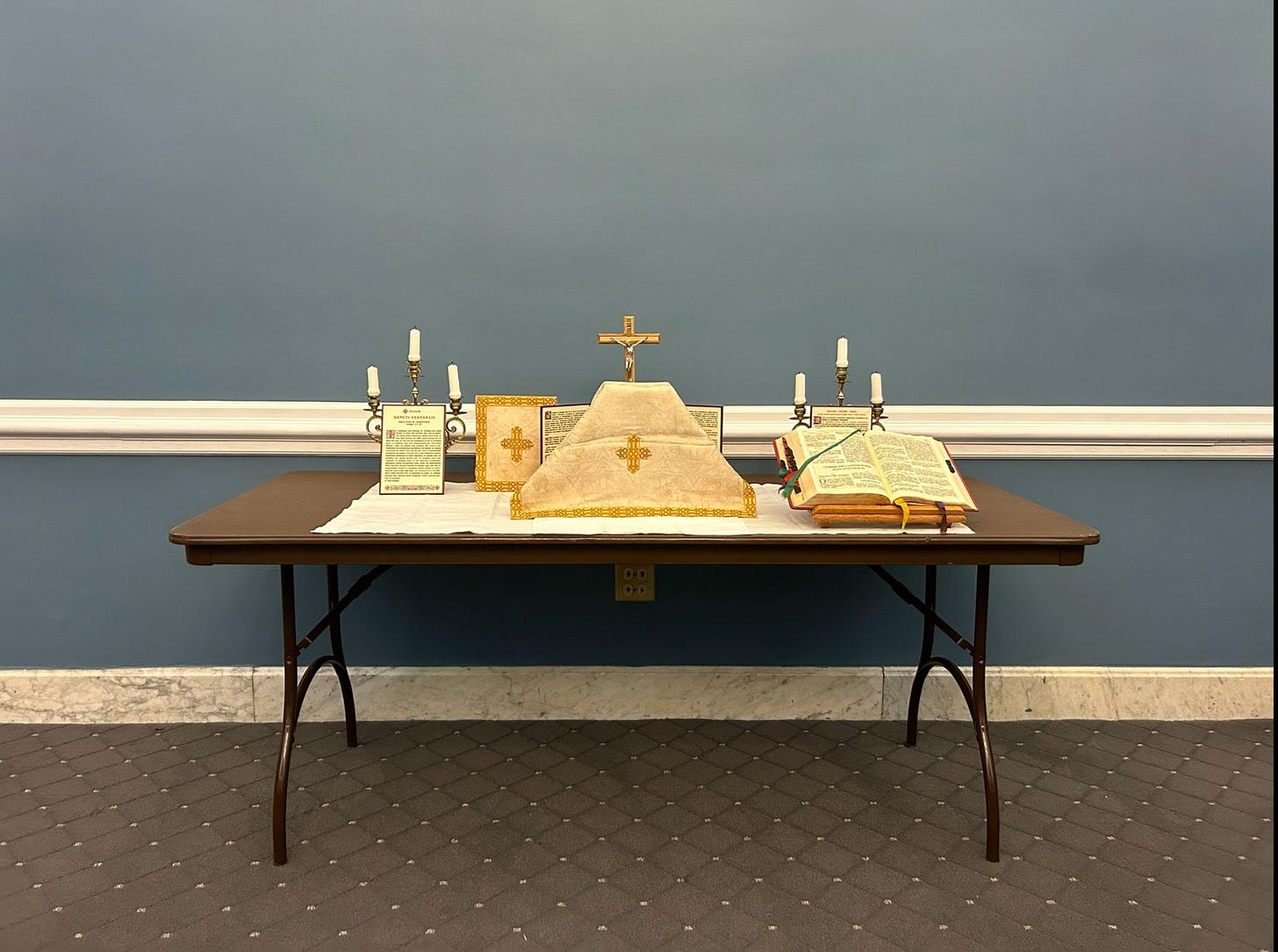‘Weaponization’ — House Speaker on FBI and ‘traditionalist’ Catholics
With the TLM at the U.S. Capitol, House Speaker Mike Johnson on a controversial FBI memo
One year after the publication of a controversial FBI memo on Catholicism, a group of Catholics was invited to celebrate a Mass according to the Extraordinary Form of the Liturgy, a “traditional Latin Mass” in the U.S. Capitol.

